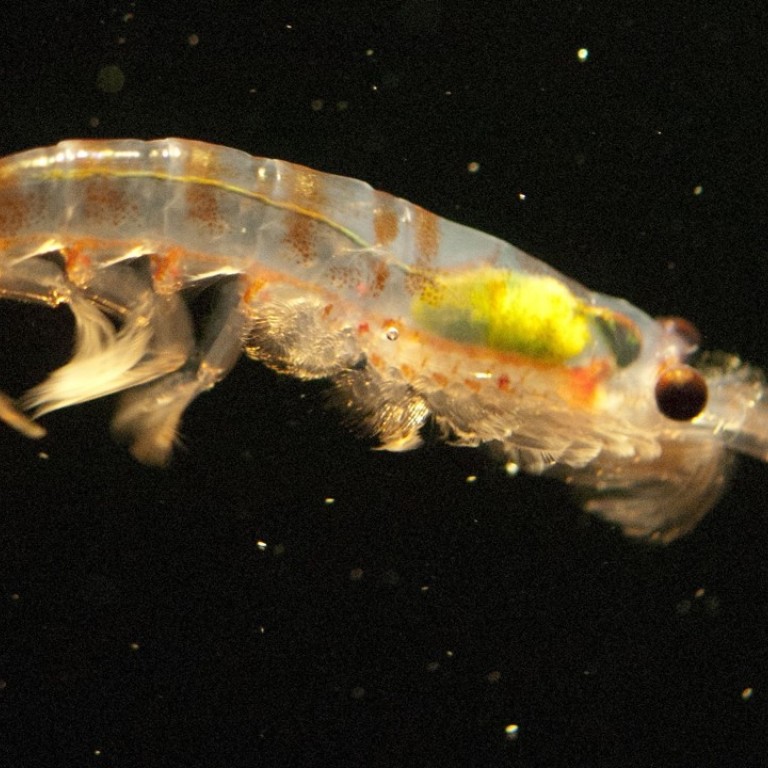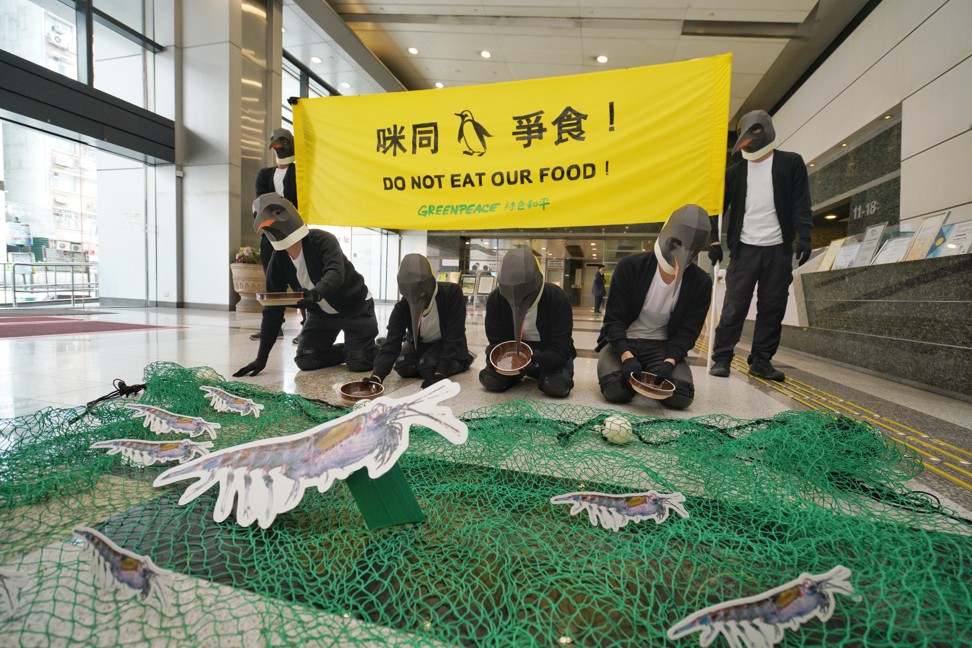
Is Hong Kong’s love affair with krill and omega-3 killing our planet?
Green campaigners look to raise awareness on threat to continent’s food chain from Hong Kong consumers
For most, the Antarctic is a cold, faraway place, observed from a distance through Planet Earth documentaries and geography textbooks.
Nothing there seems to matter much to our everyday lives, and yet the health habits of Hong Kong’s residents matter to the southern continent’s sensitive ecosystem.
Environmental campaigner Bonnie Tang Man-lam believes the time has come for Hong Kong to realise the affect some of its consumer habits are having. Tang points to the Convention on the Conservation of Antarctic Marine Living Resources, which the government is expected to implement soon, as the perfect time to start that conversation.

“Hong Kong is part of this [problem],” Tang said. “We may not have our own fishing vessels catching krill in the Antarctic, but Hong Kong consumes a lot of krill and plays an important role in its trade. We should take the opportunity to raise this concern.”
The demand for Krill, a small shrimp-like crustacean, is tied to the omega 3 fatty acids that it is rich in; acids that the global dietary industry markets as an essential daily supplement. It is also used by pharmaceutical companies, and in products for fish farming, and pets.
In 2015, the global value of krill oil totalled more than US$204 million and market forecasts expect the figure to double by 2021, with the lion’s share driven by the Asia-Pacific region.
Brain health: how biohacking with supplements improves it, and why taking ‘smart drugs’ could be dumb
A survey by the Post of several online shopping websites found that a 500mg jar of krill softgels can cost anywhere between HK$200 and HK$500.
However, Professor William Chui Chun-ming, director of the University of Hong Kong’s Centre for Medication Safety Practice and Research, said that while omega-3 was proved to be beneficial to heart and cellular health, it did not have to come from krill. Fish oil and cod liver oil both have similar benefits.
“[Krill oil] is more of a sales gimmick,” he said. “Krill might have omega-3, but is it necessary to pay more for something all the way from Antarctica?
“A smart consumer should look at cost-effectiveness.”
Aside from the impact that the increased demand for krill is having on the food chain in Antarctica, there are fears it could also add to climate change.
Antarctic krill, the most abundant of at least 80 species in the world’s oceans, is a vital food source for a variety of whales, seals, fish, squid, penguins and seabirds, on which, in turn, larger predators higher up the chain depend.

“Krill is a very important base of the food chain and plays a significant role in the carbon cycle,” said Professor Karen Chan Kit-yu, a member of the division of life sciences at the University of Science and Technology.
“They feed on phytoplankton and cycle carbon from the surface of the ocean and deposit it deep in the ocean.”
There are an estimated 500 million tonnes of Antarctic krill in the Southern Ocean, but Chan said the study of krill could not be isolated from the context of climate change.
As sea ice melts and the Southern Ocean warms, krill abundance could take a hit, and so would species that feed on it, she stressed.
China needs to spell out its Antarctic strategy, to show its commitment to conservation
As a result, Greenpeace is throwing its support behind a plan to designate a 1.8 million sq km marine protected area in the Weddell Sea that will ban krill fishing, among other activities. It will be voted on by the group of nations overseeing management of the Antarctic in October.
A spokesman for the Agriculture, Fisheries and Conservation Department said that under the proposed convention, conservation measures were in place that regulate krill fishing activities and protect their habitat, but that did not apply to the trade of Antarctic krill.
“The government will continue to organise education and publicity programmes for the general public and relevant stakeholders to arouse the understanding and awareness on the proposed legislation and regulations,” the spokesman added.
A draft bill to implement the convention will be tabled at the Legislative Council in the second half of the year.

